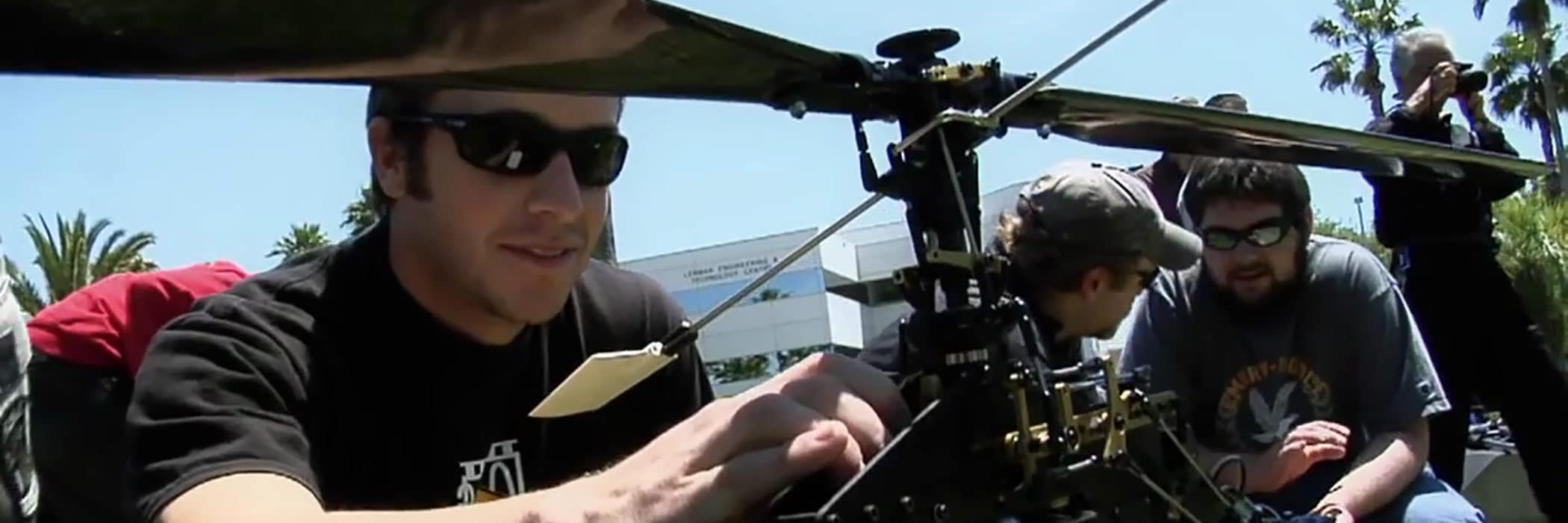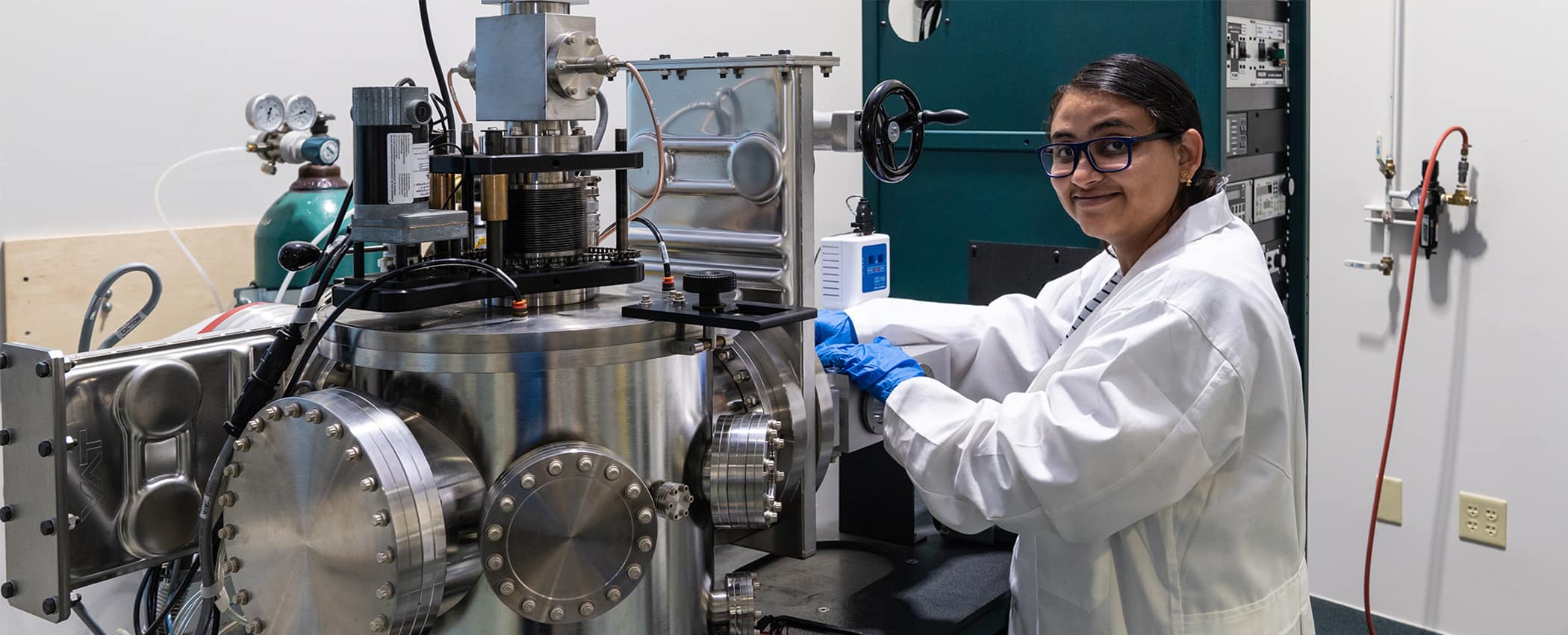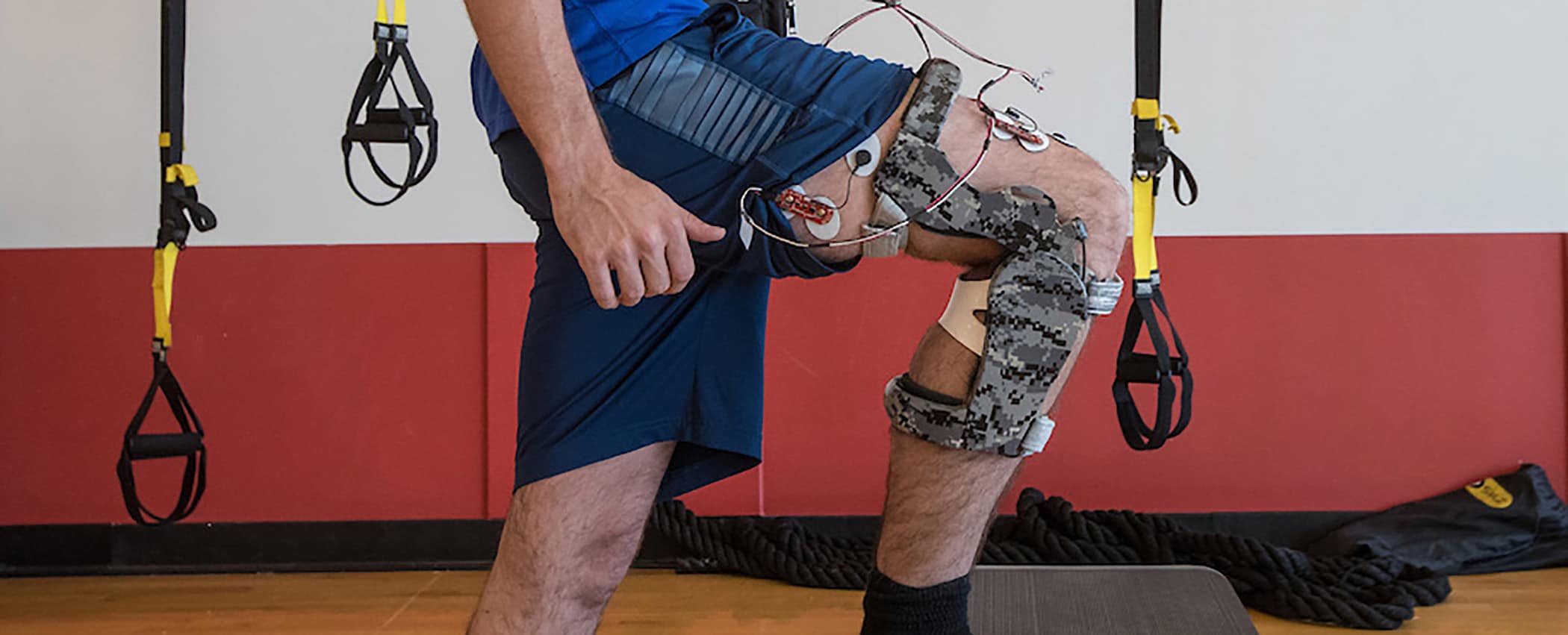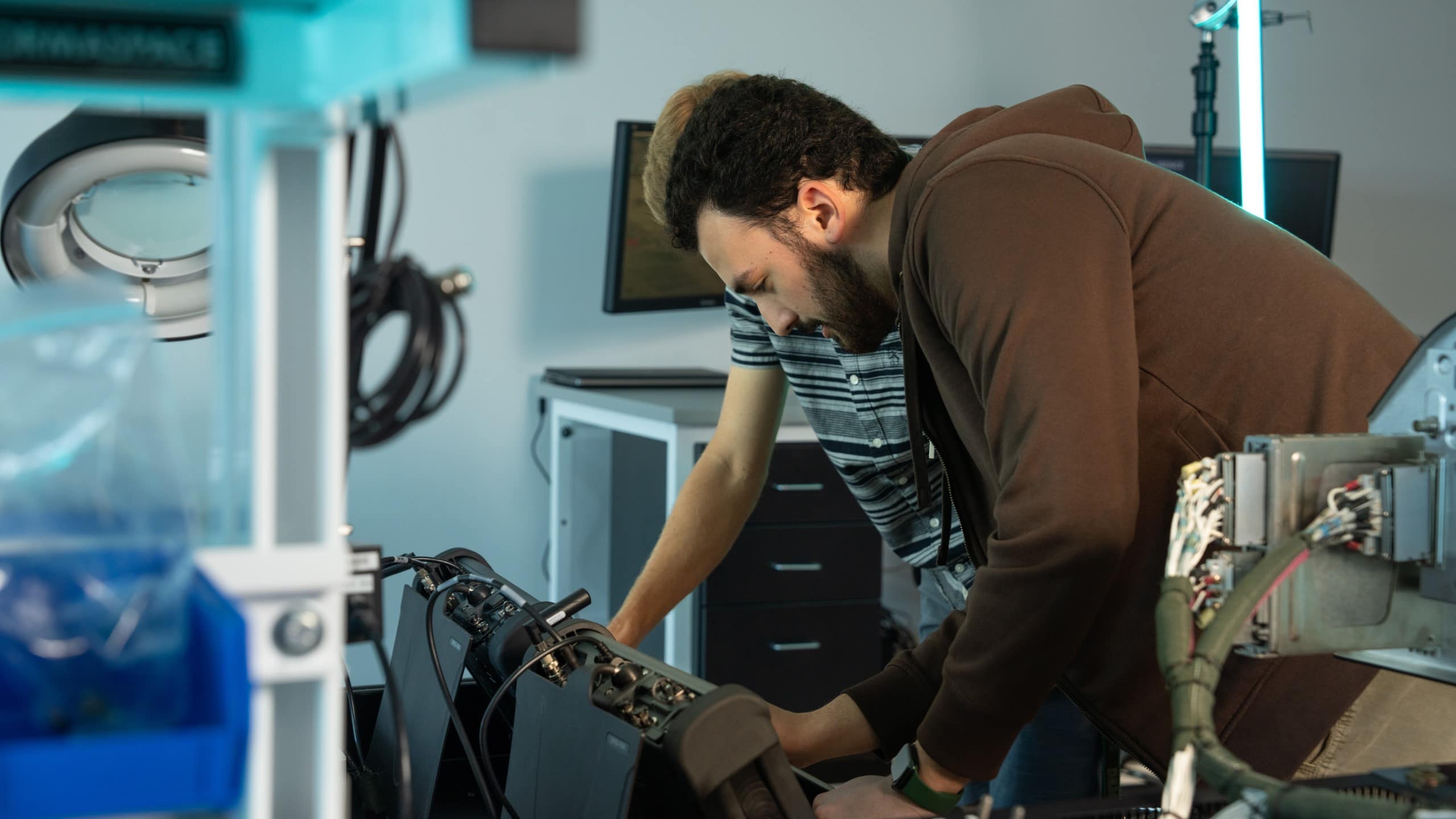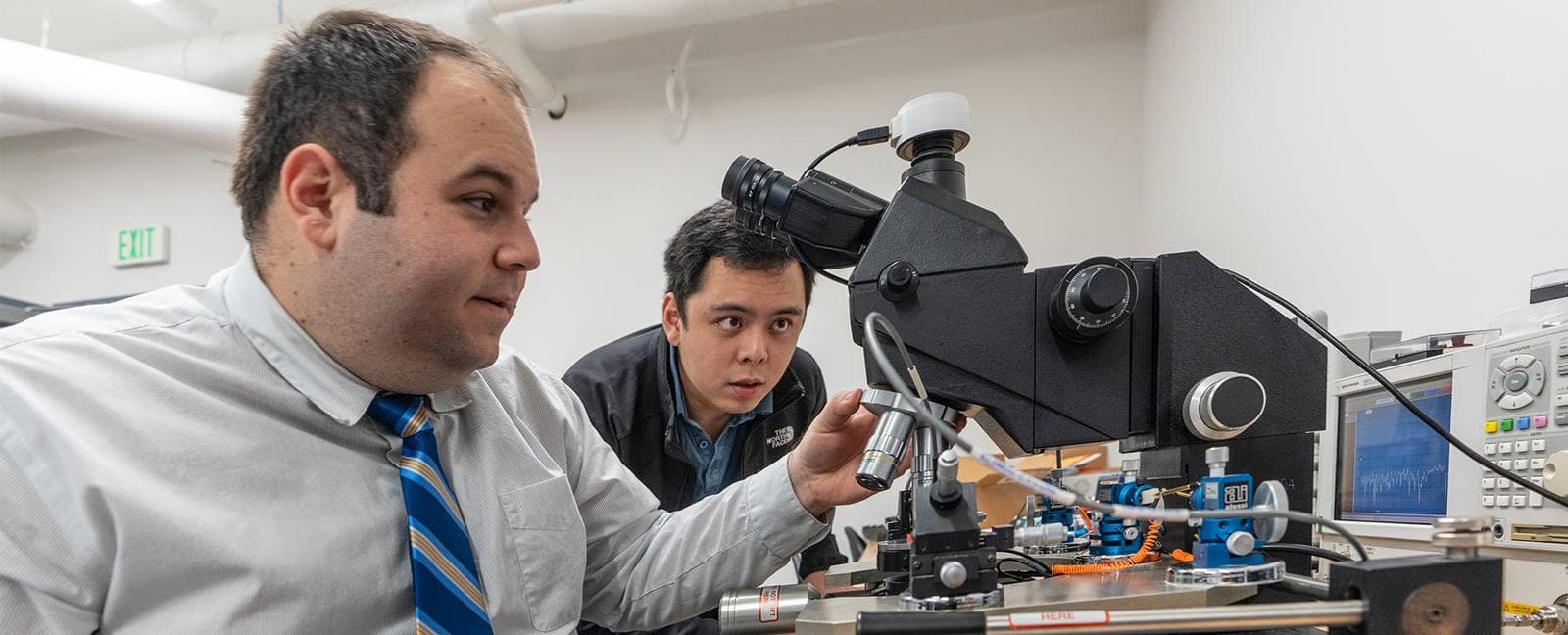
Ph.D. in
Electrical Engineering & Computer Science
Mentored by expert faculty, candidates in this program build knowledge, practical skills and research expertise needed for careers in academia or a range of industries.
As we develop the future of technology, electrical engineers will be an important part of the process, often leading the way. The Ph.D. in Electrical Engineering & Computer Science at Embry-Riddle prepares graduates to conduct research into emerging fields that represent both hardware and software.
The program combines Embry-Riddle’s expertise in aviation and aerospace with the foundational benefits of two interrelated fields, resulting in research outcomes such as avoidance systems for unmanned vehicles, assured systems in cybersecurity, or modeling and simulation.
The Ph.D. in Electrical Engineering & Computer Science (EE&CS) is a terminal degree program designed to demonstrate a student’s mastery in her/his field and ability to perform original research.
The degree program is research-oriented and will prepare graduates for careers in research and development in the corporate, government or academic arenas.
The program focuses on three general areas of research:
- “Sense and avoid” technologies for unmanned aircraft systems
- Aviation and aerospace cybersecurity
- Next generation software- and systems-engineering practices specific to assured systems, and modeling and simulation.
- The program faculty has strong presence in “sense and avoid” for unmanned aircraft systems, aviation and aerospace cybersecurity, next generation software- and systems-engineering practices, including how to cost-effectively produce certifiable assured systems, and modeling and simulation.
- Within the Department of Electrical, Computer, Software, and Systems Engineering (ECSSE), faculty have made significant contributions to recognized journals and conferences, as well as obtained external research funding from groups such as the National Science Foundation (NSF), NASA, the FAA and more.
DETAILS
About Electrical Engineering & Computer Science at the Daytona Beach, FL Campus
The Ph.D. in EE&CS degree program is housed in the Electric Engineering and Computer Science Department in the College of Engineering at the Daytona Beach Campus, which generates significant research funding through recognized organizations and corporations.
Students are even given the chance to contribute to priority projects. Ph.D. candidates are mentored by faculty who actively engage with professional associations, publishing and presenting their work.
This program prepares graduates to contribute their knowledge, skills, and research expertise to academia, industry and government.
With overarching research focuses in “detect and avoid” for unmanned systems and in cybersecurity and assured systems engineering for aerospace and aviation, the Ph.D. candidate will explore a research topic that culminates in a qualifying exam and successful dissertation defense.
With faculty support, students will develop a customized plan of study, including coursework selection, to achieve research goals.
Applicants should have completed a bachelor’s, or more advanced, degree in Computer Engineering, Computer Science, Electrical Engineering, Software Engineering, Systems Engineering or a closely related field from an ABET accredited program or international equivalent.
As Ph.D. candidates, students will gain practical experiences in cutting-edge facilities and labs, such as the Next-Generation Advanced Research (NEAR) Lab, Cybersecurity Engineering Lab, Radar and Microwaves Lab, and Intelligent Systems Lab.
The College of Engineering opened ERAU Makerspace, a 3D printing lab for faculty and students to create their own projects with advanced printers that produce three-dimensional objects from a digital file.
Student Learning Outcomes
Students will:
- Demonstrate knowledge of advanced engineering tools and professional skills consistent with expectations within their field of study to conduct original research.
- Employ critical and creative thinking to solve problems in their field of study.
- Effectively communicate within their field of study.
- Conduct research in an ethical and responsible manner.
Get Started Now:
Summary
42 Credits
Estimate your tuition by using the Tuition Calculator
View Financial Aid Information
Learn about our General Education
Find out about transferring credits to this degree
Learn more about our Veterans & Military benefits
View our Academic Calendar
